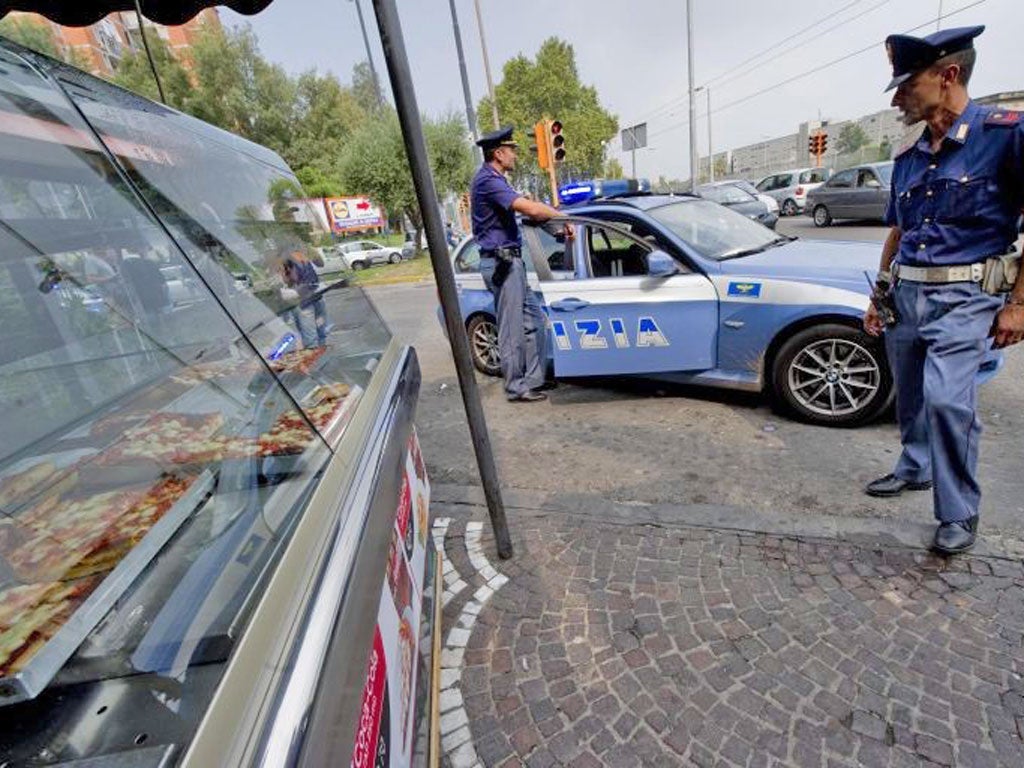Assassinations prompt fear of a renewed mob war in Naples

Your support helps us to tell the story
From reproductive rights to climate change to Big Tech, The Independent is on the ground when the story is developing. Whether it's investigating the financials of Elon Musk's pro-Trump PAC or producing our latest documentary, 'The A Word', which shines a light on the American women fighting for reproductive rights, we know how important it is to parse out the facts from the messaging.
At such a critical moment in US history, we need reporters on the ground. Your donation allows us to keep sending journalists to speak to both sides of the story.
The Independent is trusted by Americans across the entire political spectrum. And unlike many other quality news outlets, we choose not to lock Americans out of our reporting and analysis with paywalls. We believe quality journalism should be available to everyone, paid for by those who can afford it.
Your support makes all the difference.Naples, the evocative but crime-plagued southern port, fears the bloodiest mob turf war in recent Italian history is set to resume on the city's streets.
The first sign was the seaside assassination of the 48-year-old mobster Gaetano Marino on 23 August. He was gunned down in his swimming trunks in front of terrified bathers at the Terracina resort between Rome and Naples.
Then, in the early hours of Sunday morning came the response: the killing of Raffaele Abete, 41, in a bar in the Camorra-riddled Scampia area of the city. Both victims were the brothers of bosses who head opposing factions in Scampia, the drug-infested area that formed the backdrop to the Mafia film Gomorrah.
The tit-for-tat murders have raised fears of a continuation of the infamous Scissionisti ("Secessionist") drug wars, in which more than 60 people were killed in Naples in an orgy of violence between 2004 and 2005. That conflict prompted a public backlash against the Camorra with a huge crackdown by the authorities and the arrest of senior bosses.
The latest ominous developments have seen police and carabinieri reinforcements flood into Scampia.
Corriere della Sera reported yesterday that officers had held dozens of people in possession of drugs and weapons, while two assassins had been captured on their way to another hit as part of the escalating feud. "We've carried out strong controls in the territory at Scampia. But it's probably not enough and we've got to do more," Anna Maria Cancellieri, the Interior Minister, said.
The surge in violence is blamed on a turf war for the lucrative drug market in the north of the city. The proponents are thought to be factions of the Scissionisti, who themselves broke away from the ruling Di Lauro clan in 2004. That conflict between the Di Lauro and the Scissionisti became one of the bloodiest internecine battles ever seen among Italian mobsters.
The fight then and now is over one of Europe's biggest local narcotics markets, thought to be worth more than €100m (£80m) a year. The Naples police chief, Luigi Merolla, blamed "young drug dealers looking to increase space with daring operations".
"It recalls the Corleonesi [the Sicilian crime family] when they launched their internal coup in Cosa Nostra", he told La Stampa.
But one Camorra expert, Corrado De Rosa, an author and expert witness at Mafia trials, said the return to the level of bloodshed of 2004-05 was unlikely because the nature of the Camorra had changed. "The Camorra in Scampia has fragmented," he said. "There have been lots of high-profile arrests and there aren't the same big power blocks any more to organise the violence.
"It's more like New York or Bogota now. There are just as many vicious and dangerous people in circulation, but there isn't the same degree of organisation."
But he also noted that the more chaotic nature of the Camorra made it even more difficult for the police and magistrates to stem their activities.
A leading church figure said whether or not the Camorra succeeded in killing each other, the corrosive social and economic effect they had on the city and surrounding region showed few signs of abating.
Crescenzio Sepe, the Archbishop of Naples, said: "The Camorra is a tumour. It's an animal that when you cut its head off, two more grow back. All this [new violence] was predictable."
Join our commenting forum
Join thought-provoking conversations, follow other Independent readers and see their replies
Comments